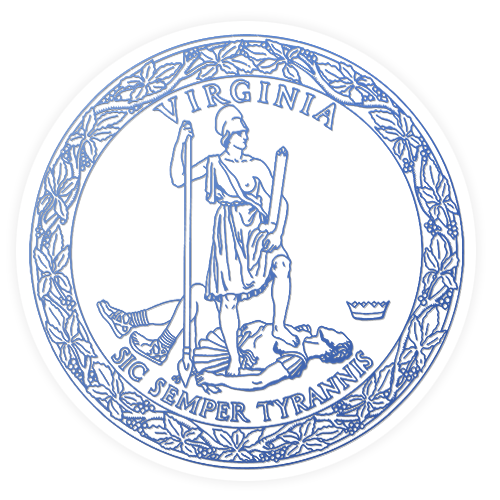
RICHMOND—As the Commonwealth continues to experience flooding and extreme weather events exacerbated by climate change, Governor Ralph Northam today announced new executive actions to improve coastal resilience and protect Virginia communities.
The three actions include (1) elevating the Virginia Coastal Zone Management Program to report to the Commonwealth’s Chief Resilience Officer, (2) issuing a statewide request for proposal for technical engineering assistance in developing the Virginia Coastal Resilience Master Plan, and (3) formally establishing the Virginia Coastal Resilience Technical Advisory Committee. These steps will directly support the Virginia Coastal Resilience Master Planning Framework announced in October.
“Virginia is increasingly experiencing intense storms and flooding due to climate change, endangering our environment and natural resources, public health and safety, and the economic well-being of the Commonwealth,” said Governor Northam. “We must act now to mitigate these threats and protect lives and livelihoods, and these actions will bolster our ongoing work to build coastal resilience and maintain thriving communities.”
Virginia’s coastal and inland flood preparedness involves large-scale planning, data collection and analysis, and project design and implementation. This year, the General Assembly passed and Governor Northam signed legislation creating the Virginia Community Flood Preparedness Fund, a low-interest loan program to assist localities impacted by recurrent flooding, sea level rise, and severe weather events. The Fund will be administered by the Department of Conservation and Recreation (DCR) and financed by the sale of emission allowances under the Regional Greenhouse Gas Initiate (RGGI). The Fund will receive 45 percent of the proceeds from the RGGI auctions, which are anticipated to generate more than $100 million per year.
On Monday, December 7, 2020, DCR will publish draft guidelines on the uses and administration of the Fund. The draft guidelines are available for review and public comment through Sunday, January 31, 2021. To learn more about participating in the online comment forum, please visit townhall.virginia.gov. The Northam Administration will also conduct targeted outreach to localities, tribal governments, planning districts, and key stakeholders.
Additional information on the three executive actions announced by the Governor and the ways they will support Virginia’s coastal resilience and flooding preparedness efforts is available below. Learn more about resilience and coastal adaptation initiatives in Virginia here.
Virginia Coastal Zone Management Program
The Virginia Coastal Zone Management (CZM) Program is a network of state agencies and coastal localities led by the Department of Environmental Quality (DEQ) that funds a variety of projects through a grant from the National Oceanic and Atmospheric Administration (NOAA). Governor Northam recently signed Executive Directive Thirteen, which elevates the CZM Program to report directly to the Secretary of Natural Resources and Commonwealth’s Chief Resilience Officer on matters of coastal adaptation and protection. This will improve coordination on coastal resilience initiatives and provide technical and administrative support to the TAC that includes decision option identification, stakeholder and advisor input management, data collection and syntheses, and performance monitoring.
Virginia Coastal Resilience Master Plan Request for Proposal
The Department of General Services has issued a request for proposal (RFP) to procure technical engineering services in developing the Virginia Coastal Resilience Master Plan, which is expected to be complete by the fall of 2021. The contractor will assist with risk analysis, creation of a database of vulnerable infrastructure, and development of a prioritized long-term implementation plan. Additional information about this RFP can be found here.
Virginia Coastal Resilience Technical Advisory Committee
Coastal resilience planning encompasses many policy initiatives, government agencies, and federal resources, and requires coordination among state and local leaders, scientists and engineers, and impacted stakeholders. Governor Northam recently signed Executive Order Seventy-One, which establishes the Virginia Coastal Resilience Technical Advisory Committee. The Technical Advisory Committee (TAC) is tasked with facilitating this coordination and developing recommendations for specific, place-based, coastal adaptation and protection strategies.
Today, the Governor is appointing members of the TAC, which includes representatives from the eight coastal Planning District Commissions, academic and technical experts, and state and federal agencies. The TAC will hold its first public meeting on Monday, December 14, 2020.
The individuals appointed to the TAC include:
Matthew J. Strickler, Chair, Secretary of Natural Resources and Chief Resilience Officer
Rear Admiral (Retired) Ann C. Phillips, Special Assistant to the Governor for Coastal Adaptation and Protection
Dr. Janice Underwood, Chief Diversity, Equity, and Inclusion Officer
Carlos Rivero, Chief Data Officer
Clyde Cristman, Director, Department of Conservation and Recreation
Curtis Brown, State Coordinator, Virginia Department of Emergency Management
Erik Johnston, Director, Department of Housing and Community Development
Stephanie L. Hamlett, Executive Director, Virginia Resources Authority
David K. Paylor, Director, Department of Environmental Quality
Catherine C. McGhee, Director of Research and Innovation, Virginia Transportation Research Council
Steve Bowman, Commissioner, Virginia Marine Resources Commission
Emily Steinhilber, Coordinator, Commonwealth Center for Recurrent Flooding Resiliency at Old Dominion University
Dr. Mark Luckenbach, Associate Dean for Research and Advisory Services, Virginia Institute of Marine Science at William & Mary
Elizabeth Andrews, Director, Virginia Coastal Policy Center at William & Mary Law School
Dr. Robert Weiss, Director, Center for Coastal Studies at Virginia Tech
Dr. Karen McGlathery, Director, Environmental Resilience Institute at the University of Virginia
Colonel Patrick V. Kinsman, Commander, United States Army Corps of Engineers, Norfolk District
Dr. Troy Hartley, Director, Virginia Sea Grant
Robert A. Crum, Jr., Executive Director, Hampton Roads Planning District Commission
Martha Heeter, Executive Director, Plan RVA (Richmond Regional Planning District Commission)
Robert W. Lazaro, Executive Director, Northern Virginia Regional Commission
Linda Struyk Millsaps, Executive Director, George Washington Regional Commission
Jerry W. Davis, Executive Director, Northern Neck Planning District Commission
Elaine Meil, Executive Director, Accomack-Northampton Planning District Commission
Lewis L. Lawrence, III, Executive Director, Middle Peninsula Planning District Commission
Alec Brebner, Executive Director, Crater Planning District Commission
# # #